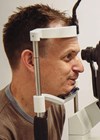A new course in empathic consulting helps audiologists deepen patient trust and engagement, focusing on emotional insight to improve care quality and consultation outcomes.
Leightons and The Hearing Care Partnership have developed an innovative course focused on empathic consulting for audiologists in adult audiology care. This unique programme aims to transform how audiologists interact with patients, enhancing both the patient experience and clinical outcomes by fostering a deeper emotional understanding during consultations.
A concept brought to life
At the heart of this empathic consulting course is the understanding of how emotions impact decision-making and the overall patient journey in audiology care [1]. This initiative addresses a common gap in traditional audiology education, which often emphasises technical skills but can overlook the development of the soft skills necessary for meaningful patient engagement.


Lead by the development team, a group exercise designed to help ‘find our best self’, using cards and images to display this.
In creating the course, the development team drew on the insights of several notable psychology and communication experts. Lisa Feldman Barrett’s research into how the brain processes emotions played a crucial role in shaping the course, providing a deeper understanding of the connection between emotional processing and effective communication [1]. Julian Treasure’s work was influential in illustrating how the ways we listen and speak can alter the dynamics of patient interactions [2]. Amy Cuddy’s ideas from Presence helped to highlight the importance of body language in shaping confidence [3]. These diverse perspectives form a well-rounded approach to empathy in patient care.
After all, audiology is not just about conducting hearing tests and providing hearing aids. Rather, it is a holistic practice that requires empathy, understanding and effective communication. Hearing loss can be a shock for many patients, bringing unexpected feelings of vulnerability and disconnection. Audiologists, therefore, need to ensure that their consultations go beyond clinical assessments, offering a kind, empathetic approach that supports patients through this life adjustment [2].
Workshop 1: the why
The course begins with a full-day, in-person exploration of the ‘why’ behind the work of audiologists. This session encourages participants to reflect upon the deeper purpose of their roles and how emotional factors influence their work [1]. By focusing on both listening and communicating differently, participants develop skills that can significantly improve the consultation process. Audiologists learn to have a better understanding of their own motivations and how they impact patient interactions, ultimately enhancing their capacity to connect.
Workshop 2: the how
The second module, also conducted as an in-person, one-day event, focuses on the practical adjustments that audiologists can make to enhance their approach at every stage of patient interaction. Emphasising subtle adjustments in communication style, audiologists can create a more positive and effective consultation experience. For instance, this session allows participants to focus on practical exercises, including techniques such as breath work, helping them to recognise their own voice as a powerful yet often underutilised tool for enhancing consultations. This learning encourages audiologists to make small but impactful changes that ensure patients feel truly heard and understood [3].
Workshop 3: the what
The final workshop is reflective, allowing participants to identify areas for improvement while reinforcing successful practices. Conducted remotely, this session emphasises understanding unconscious bias and how it can impact consultations. By revisiting their own perspectives, participants develop a clearer understanding of how their approach affects patient care. They are encouraged to recognise the importance of continuous self-reflection, which contributes to long-term professional growth and patient satisfaction [1].
Impact and outcomes
Course participants consistently highlight the empathic consulting course’s transformative nature. By incorporating techniques that foster emotional intelligence, such as effective questioning, reflective listening and mental preparation, audiologists have been able to create an environment where patients feel genuinely heard and supported.
This deeper connection not only motivates patients to engage with their hearing health but also significantly enhances their overall experience and quality of life. Furthermore, by ensuring a more empathetic approach, patients are less likely to feel overwhelmed or isolated when facing the challenges of hearing loss.
Amanda Deveney, Hearing Aid Audiologist, noted: “Beth and Claire’s approach to the training was engaging, fun and professional. Empathy is a crucial component of effective consulting, and the course allowed everyone to reflect deeply on their current approach and presentation of audiology consultations. In turn, this has significantly enhanced both my patients’ satisfaction and my own job fulfilment. The course has encouraged me to tap into my emotional intelligence and get the most out of the clinical assessments for all involved. On challenging or stressful days, I’ve incorporated new breathing techniques – expertly demonstrated by audiologist and yoga instructor Katy Waterman – into my routine to recentre and provide best version of myself for my patients.”
Janos Tomics, Hearing Aid Audiologist, also shared his experience: “I found the empathic consultation workshop incredibly valuable. I particularly valued the insights on improving communication and the techniques for creating deeper connections with clients. The guidance on preparing mentally before consultations was also beneficial, helping me enhance both my focus and engagement with clients.
“The empathic consultation approach helps clients feel truly heard and allows the audiologist to understand the client better as a person. Since completing the training, my communication and listening skills have changed significantly, and the sense that I can connect with my clients on a deeper level has boosted my confidence. Asking questions, such as ‘What would you like to get out of this appointment?’, can transform the entire atmosphere of a consultation. I would definitely recommend empathic consultation training to any healthcare professionals, teachers, or anyone else in a people-focused role.”
Career fulfilment
Beyond the benefits to patient care, the empathic consulting course has had a significant positive impact on audiologists’ job satisfaction. By equipping them with tools to foster more meaningful patient relationships, the training has rekindled the participants’ passion for their work, helping them feel more fulfilled in their roles. Some reported a renewed sense of enthusiasm, sharing that they ‘love their job again’ after completing the course.

Cohort number seven! The newest team to attend and complete the ECT course.
The course also positions Leightons and The Hearing Care Partnership as forward-thinking employers who invest in their staff’s wellbeing and professional development. By investing in these unique training opportunities, the organisation not only enhances care quality but also creates a supportive work environment that empowers audiologists to thrive and maintain a healthy work-life balance.
Looking to the future
The team behind the course is exploring ways to expand this training further, including adapting it for other roles within the organisation. With overwhelmingly positive feedback, they are considering a follow-up session to continue building and embedding these skills as part of the organisational culture. As the course continues to evolve, it promises to bring even greater value to the field of audiology and beyond.
References
1. Barrett LF. How Emotions Are Made: The Secret Life of the Brain. Houghton Mifflin Harcourt; 2020.
2. Treasure J. How to Speak so That People Want to Listen. TED Talk, 2014.
https://www.ted.com/talks/
julian_treasure_how_to_speak_so_
that_people_want_to_listen?subtitle=en
[Link last accessed November 2024].
3. Cuddy A. Presence: Bringing Your Boldest Self to Your Biggest Challenges. Little, Brown and Company; 2015.
Declaration of competing interests: None declared.









